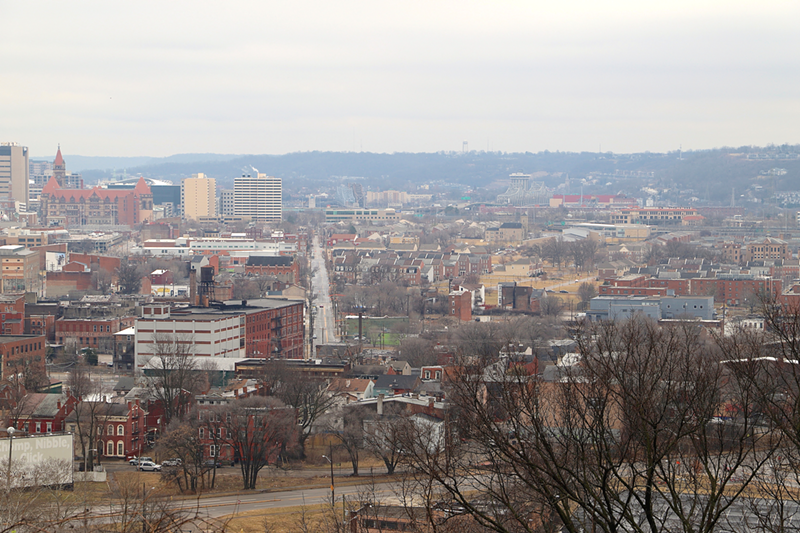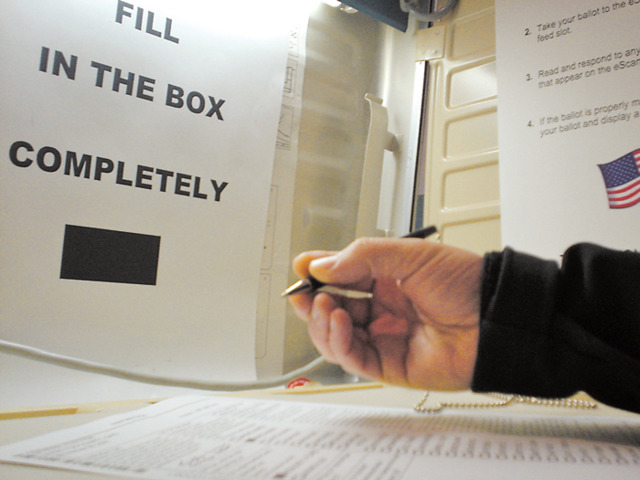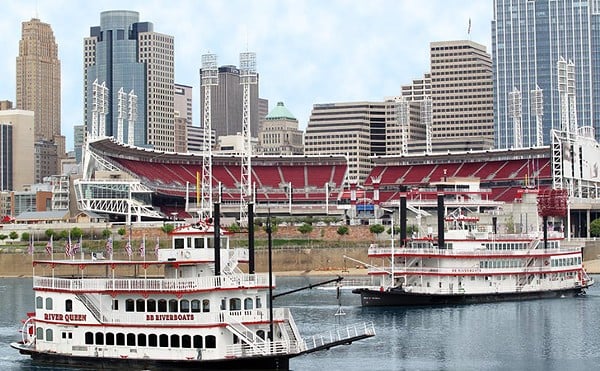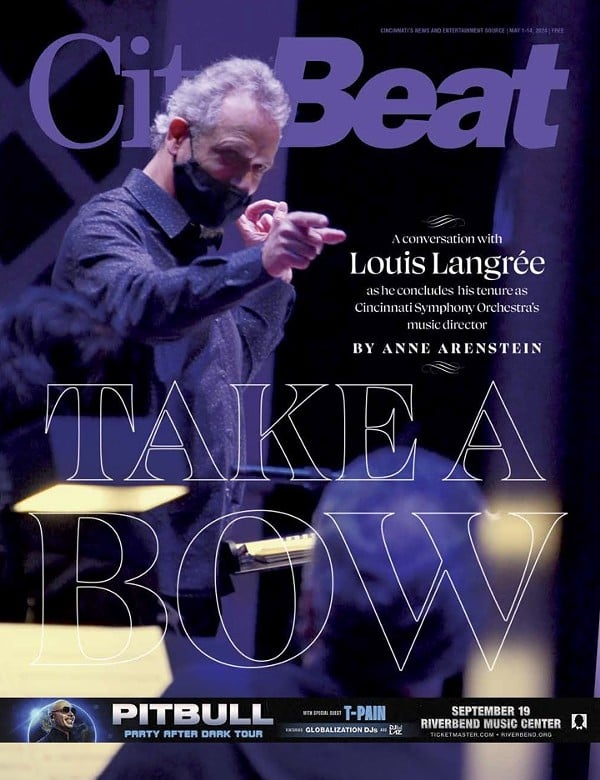Opponents of FCC's proposed West End stadium say they'll try to get a citywide vote on whether the city should spend public money for infrastructure around the project. But the city of Cincinnati says that's not possible.
Following news that city elected officials, FC Cincinnati representatives and unspecified West End stakeholders will meet tomorrow to try and hammer out a Cincinnati City Council-required community benefits agreement, a group calling itself Coalition Against an FC Cincinnati Stadium in the West End announced today it had filed paperwork to get a referendum against the April 16 city council vote to spend $35 million on infrastructure for the project.
To get the referendum on the November 6 ballot, the group will need to collect 6,000 signatures in the next 30 days.
The group, which includes Greater Cincinnati Coalition for the Homeless Executive Director Josh Spring, activist Brian Garry and former Cincinnati City Council candidate Michelle Dillingham, says city voters should be able to decide whether the city spends tax money to support the stadium.
The group says four West End residents -- Ernestine Hill, Rachel Anderson, Contina Davis and George Lee are among the six people who filed the petition drive.
"We believe the people of Cincinnati should have the opportunity to democratically vote on whether the City should provide support, financial and otherwise to FC Cincinnati’s proposed stadium," the stadium opponents said in a news release today. "This petition would let the PEOPLE of Cincinnati decide whether this is a good or bad deal for Cincinnati."
The city, however, says that because the ordinance allowing the money for infrastructure was passed as an emergency measure, it is not subject to referendum. An emergency designation allows an ordinance to go into effect right away, without the usual 30-day wait period. Stadium opponents say they'll fight the city in court over that.
Opponents of a 2013 deal that would have privatized the city's parking system took a similar tack trying to kill that plan. Hamilton County Courts upheld their efforts to get a referendum against the privatization ordinance, but a federal appeals court later shut them down. The ordinance creating that plan was also passed as an "emergency," and the city defended it on those grounds. The deal died anyway after Mayor John Cranley was elected.
Here’s the city money on offer to FCC under the stadium deal council passed, which assumes that the Greater Cincinnati Redevelopment Authority will enter into a own/lease back agreement with the team, exempting it from most property taxes and sales taxes on construction materials:
• $8 million from a tax increment financing district covering Over-the-Rhine and downtown. TIF districts funnel property taxes into special funds that can only be spent on infrastructure in designated areas.
• $7.2 million from the city’s proceeds from its 2014 sale of Blue Ash airport. Unlike other funding sources in the deal, that money doesn’t have restrictions on how it can be spent.
• As much as $1.5 million annually for 30 years from the city’s portion of the Hamilton County hotel tax fund.
• $2.5 million from the city’s capital fund
• In addition to infrastructure funds, the city is also offering a 15-year Job Retention Tax Credit worth 50 percent of the city income tax withholdings for FCC employees.
The money for infrastructure is contingent on FC Cincinnati signing a CBA with a representative coalition of West End groups.
FCC's potential privately financed $200 million stadium at the site of Cincinnati Public Schools' Stargel Stadium has been controversial. CPS Board of Education entered into a land swap agreement with the team last month after a protracted battle about fees in lieu of taxes for the school. FCC eventually agreed to pay the full taxes that would be due the district based on the stadium's valuation. That deal also requires FCC spend $10 million replacing Stargel at a site across Ezzard Charles Blvd.
Other groups, however, have not approved the stadium. The general body of the West End Community Council voted 50-10 in opposition to the project, and the Over-the-Rhine Community Council also voted against it. The stadium will be located along Central Parkway, just a few hundred feet from OTR.
Prior to city council voting to provide infrastructure funding for the stadium, FC Cincinnati GM Jeff Berding and WECC President Keith Blake signed a community benefits agreement that would give $100,000 a year to various neighborhood groups, transfer purchase options on land currently owned by the Cincinnati Metropolitan Housing Authority through the Greater Cincinnati Redevelopment Authority to a private developer for mixed-income housing construction and mitigate light, traffic and sound issues around the stadium.
That deal, however, did not have the support of the WECC general body, which subsequently voted to begin impeachment proceedings against Blake. Skeptics, including a national expert on such agreements, have said the CBA is too favorable to the team and call the enforcement mechanism for the CBA — a large panel with members picked by Mayor John Cranley with council's approval — too convoluted.
The stadium's construction hinges on FCC receiving a Major League Soccer expansion franchise. Several deadlines for the announcement of the winner between Cincinnati, Sacramento and Detroit have come and gone with no announcement.






